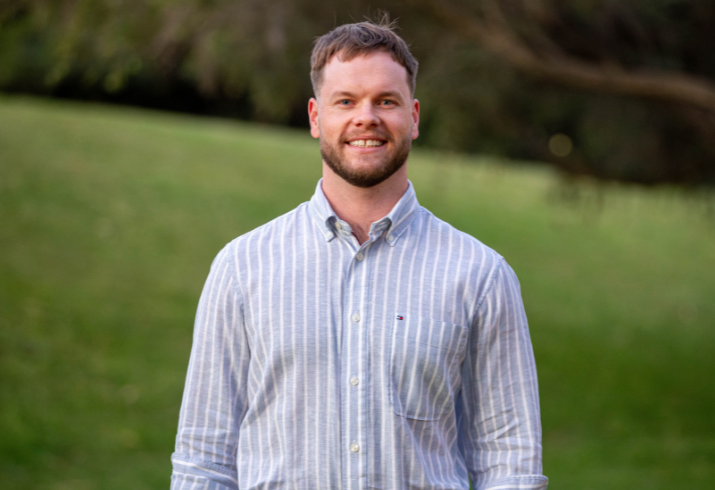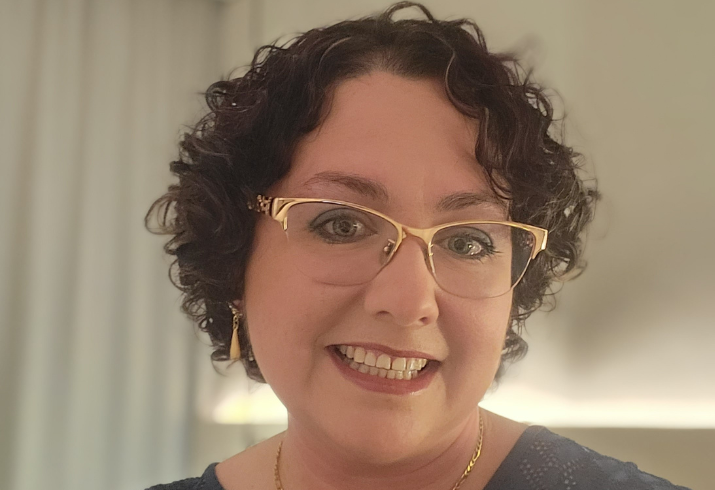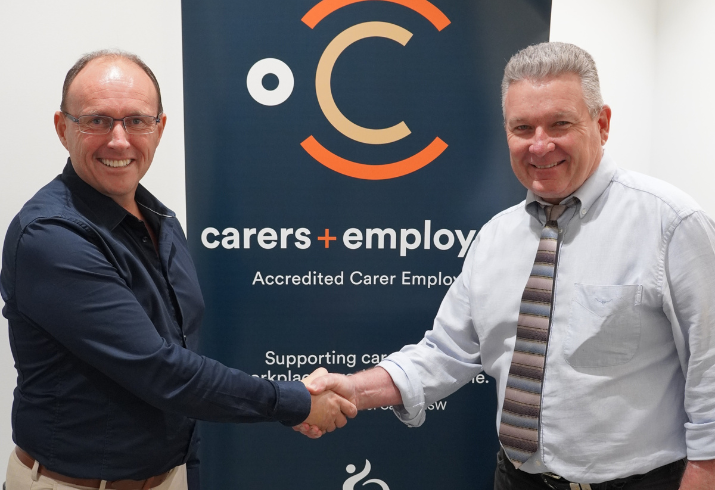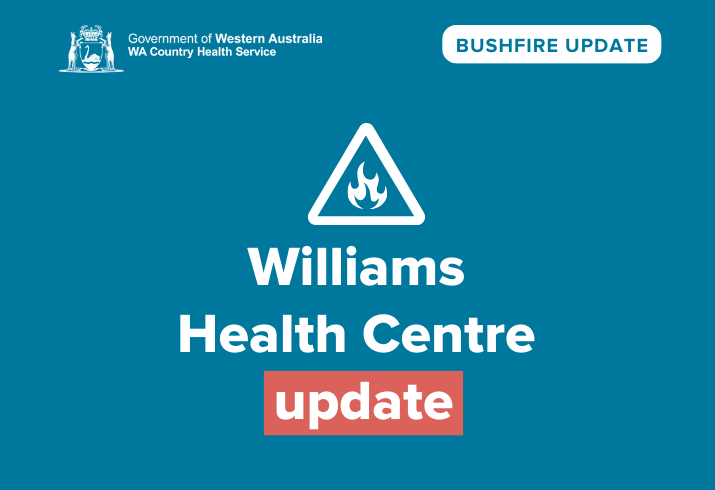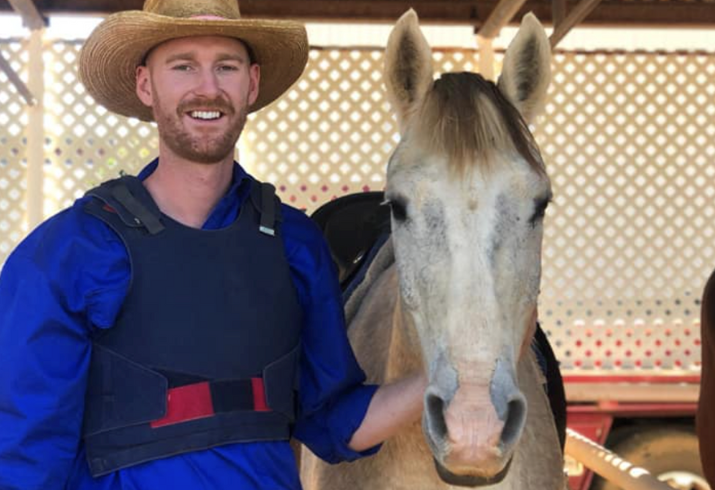News
More WACHS News
-
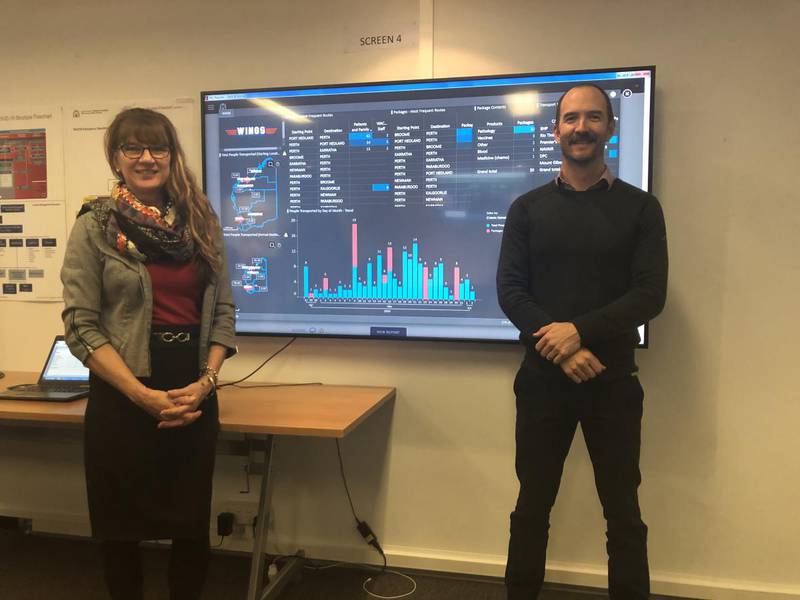 Our frontline in the air: WACHS WINGS keeping patients and health supplies moving during COVID-19 10 June 2020 Facing travel restrictions during COVID-19 may be an inconvenience for tourists and holidaymakers, but for Point Samson resident Lisa Ogle, it could have meant a delay in getting potentially life-saving scans. To make sure Lisa made it to her appointment in Perth and home again, the WA Country Health Service (WACHS) specially convened an emergency response transport and logistics team – known as WACHS WINGS – and worked with partners in the resource sector to find seats on charter flights. Lisa’s journey began a couple of years ago after a routine appendectomy uncovered a rare tumour on her appendix. Every six months she is required to travel from Point Samson to Sir Charles Gairdner Hospital for a gallium PET scan. Missing her May appointment would have meant waiting until November – an option she and her specialist team were not prepared to consider. “...
Our frontline in the air: WACHS WINGS keeping patients and health supplies moving during COVID-19 10 June 2020 Facing travel restrictions during COVID-19 may be an inconvenience for tourists and holidaymakers, but for Point Samson resident Lisa Ogle, it could have meant a delay in getting potentially life-saving scans. To make sure Lisa made it to her appointment in Perth and home again, the WA Country Health Service (WACHS) specially convened an emergency response transport and logistics team – known as WACHS WINGS – and worked with partners in the resource sector to find seats on charter flights. Lisa’s journey began a couple of years ago after a routine appendectomy uncovered a rare tumour on her appendix. Every six months she is required to travel from Point Samson to Sir Charles Gairdner Hospital for a gallium PET scan. Missing her May appointment would have meant waiting until November – an option she and her specialist team were not prepared to consider. “... -
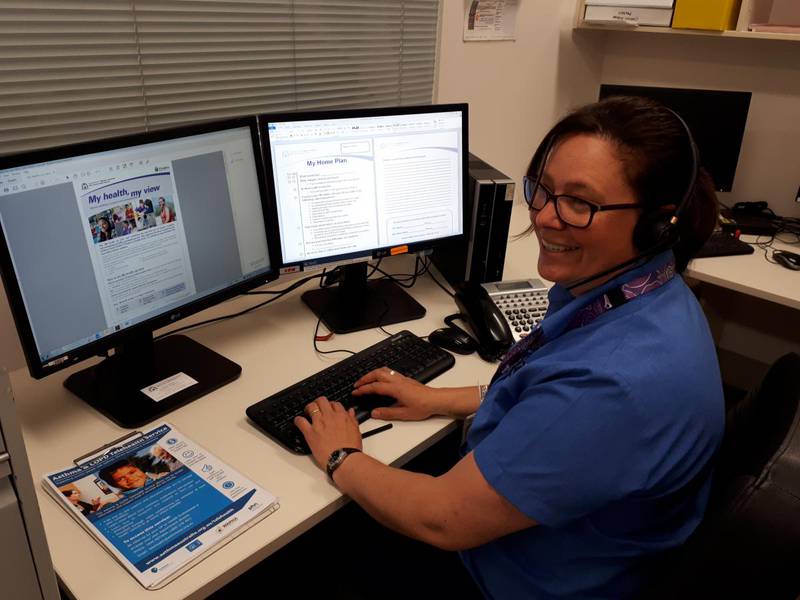 COVID-19 outreach support program provides targeted care for high risk patients with chronic conditions 08 June 2020 The WA Country Health Service (WACHS), in partnership with WA Primary Health Alliance (WAPHA), is finding new and innovative ways of supporting and caring for vulnerable patients who are at an increased risk of complication if they were to contract COVID-19. The COVID-19 Chronic Conditions Outreach Support program helps patients manage their existing condition and stay out of hospital, while providing a support network as they isolate at home. WACHS Regional Chronic Conditions Care teams have been proactively reaching out to patients via telephone to help them navigate the complicated COVID-19 health guidelines and work through any problems related to their existing condition. WACHS Acting Executive Director Health Programs, Margaret Abernethy, said COVID-19 has been a challenging and worrying time for us all but more so for people managing existing chronic conditions who are faced wi...
COVID-19 outreach support program provides targeted care for high risk patients with chronic conditions 08 June 2020 The WA Country Health Service (WACHS), in partnership with WA Primary Health Alliance (WAPHA), is finding new and innovative ways of supporting and caring for vulnerable patients who are at an increased risk of complication if they were to contract COVID-19. The COVID-19 Chronic Conditions Outreach Support program helps patients manage their existing condition and stay out of hospital, while providing a support network as they isolate at home. WACHS Regional Chronic Conditions Care teams have been proactively reaching out to patients via telephone to help them navigate the complicated COVID-19 health guidelines and work through any problems related to their existing condition. WACHS Acting Executive Director Health Programs, Margaret Abernethy, said COVID-19 has been a challenging and worrying time for us all but more so for people managing existing chronic conditions who are faced wi... -
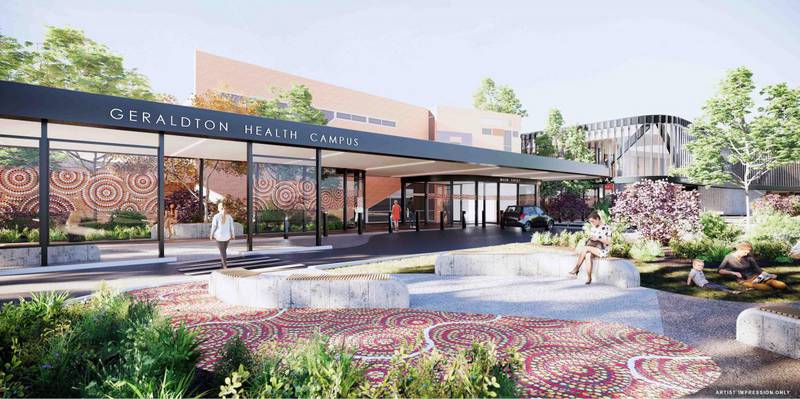 Geraldton Health Campus redevelopment off to a strong start 04 June 2020 Forward works are set to commence at the Geraldton Health Campus as part of its $73.3 million redevelopment. Announced today, by Premier Mark McGowan and Minister for Health Roger Cook, ADCO Constructions Pty Ltd has been awarded the contract to deliver the improvements at the facility with 70 local jobs expected to be created as a result. Works are expected to commence soon and be completed in the first quarter of 2021. They include: • an ambulance entry on Shenton Street • reconfiguration of the main entry to the health campus • a new carpark close to the main entry • a southern carpark and access road from Onslow Street. WA Country Health Service Regional Director Jeff Calver said the forward works will complement the wider redevelopment of the facility. “The works will provide the necessary support infrastructure to cater for the expected increase in pa...
Geraldton Health Campus redevelopment off to a strong start 04 June 2020 Forward works are set to commence at the Geraldton Health Campus as part of its $73.3 million redevelopment. Announced today, by Premier Mark McGowan and Minister for Health Roger Cook, ADCO Constructions Pty Ltd has been awarded the contract to deliver the improvements at the facility with 70 local jobs expected to be created as a result. Works are expected to commence soon and be completed in the first quarter of 2021. They include: • an ambulance entry on Shenton Street • reconfiguration of the main entry to the health campus • a new carpark close to the main entry • a southern carpark and access road from Onslow Street. WA Country Health Service Regional Director Jeff Calver said the forward works will complement the wider redevelopment of the facility. “The works will provide the necessary support infrastructure to cater for the expected increase in pa... -
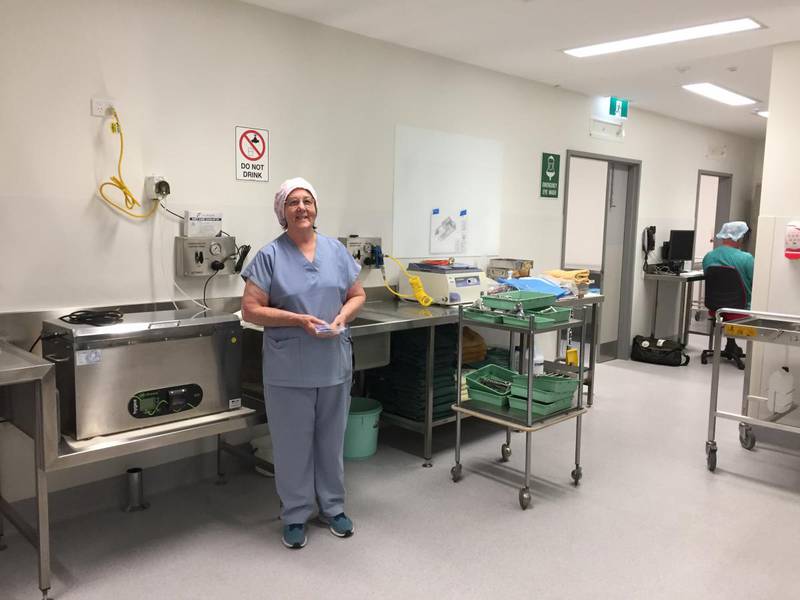 State-of-the-art operating theatres open at Northam Health Campus 02 June 2020 Two fully integrated operating theatres featuring state-of-the-art technology now operational at Northam Health Campus $42 million hospital refurbishment part of biggest transformation of country hospitals and health services in more than a generation Improved, modern facilities bring world-class care closer to home for Wheatbelt residents Northam Health Campus has officially opened two new fully integrated operating theatres featuring state-of-the-art technology as part of the hospital's$42 million redevelopment. The refurbishment is part of the biggest transformation of country hospitals and health services in more than a generation. The improved, modern facilities enable the Wheatbelt community access to high-quality healthcare closer to home. The WA Country Health Service’s (WACHS) Chief Operating Officer Margaret Denton said the contemporary facilities were an...
State-of-the-art operating theatres open at Northam Health Campus 02 June 2020 Two fully integrated operating theatres featuring state-of-the-art technology now operational at Northam Health Campus $42 million hospital refurbishment part of biggest transformation of country hospitals and health services in more than a generation Improved, modern facilities bring world-class care closer to home for Wheatbelt residents Northam Health Campus has officially opened two new fully integrated operating theatres featuring state-of-the-art technology as part of the hospital's$42 million redevelopment. The refurbishment is part of the biggest transformation of country hospitals and health services in more than a generation. The improved, modern facilities enable the Wheatbelt community access to high-quality healthcare closer to home. The WA Country Health Service’s (WACHS) Chief Operating Officer Margaret Denton said the contemporary facilities were an... -
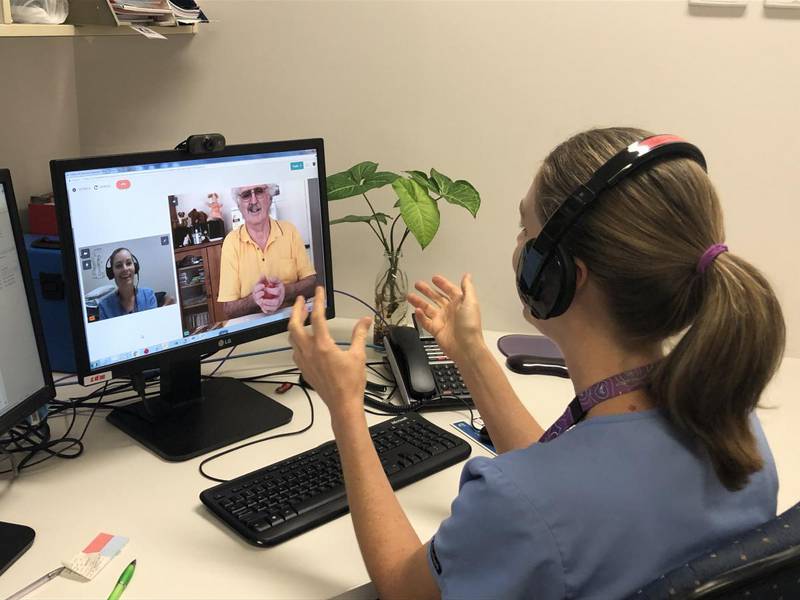 Stroke rehab via telehealth is hands-down a winner for patients 02 June 2020 For anyone who has suffered a stroke, access to rehabilitation services can be a lifeline back to good health. Occupational therapists are usually hands-on, but the Bunbury outpatient stroke team has recently embraced the transition to telerehab: delivering rehabilitation programs via Video Call (VC). Their innovative approach is proving a winner, with a range of successful therapies now provided in virtual consultations to patients’ homes. Bunbury resident David McNair suffered a stroke last year and has been undertaking rehabilitation with the local team for eight months. He now has appointments at home on his iPad, with his wife Hazel providing therapy support and occasional IT support. David said he was really happy with the result. “It’s as good as I thought it would be, if not better,” he said via VC to senior occupational therapist Kit Lucas. “...
Stroke rehab via telehealth is hands-down a winner for patients 02 June 2020 For anyone who has suffered a stroke, access to rehabilitation services can be a lifeline back to good health. Occupational therapists are usually hands-on, but the Bunbury outpatient stroke team has recently embraced the transition to telerehab: delivering rehabilitation programs via Video Call (VC). Their innovative approach is proving a winner, with a range of successful therapies now provided in virtual consultations to patients’ homes. Bunbury resident David McNair suffered a stroke last year and has been undertaking rehabilitation with the local team for eight months. He now has appointments at home on his iPad, with his wife Hazel providing therapy support and occasional IT support. David said he was really happy with the result. “It’s as good as I thought it would be, if not better,” he said via VC to senior occupational therapist Kit Lucas. “...
Last Updated:
24/01/2024


